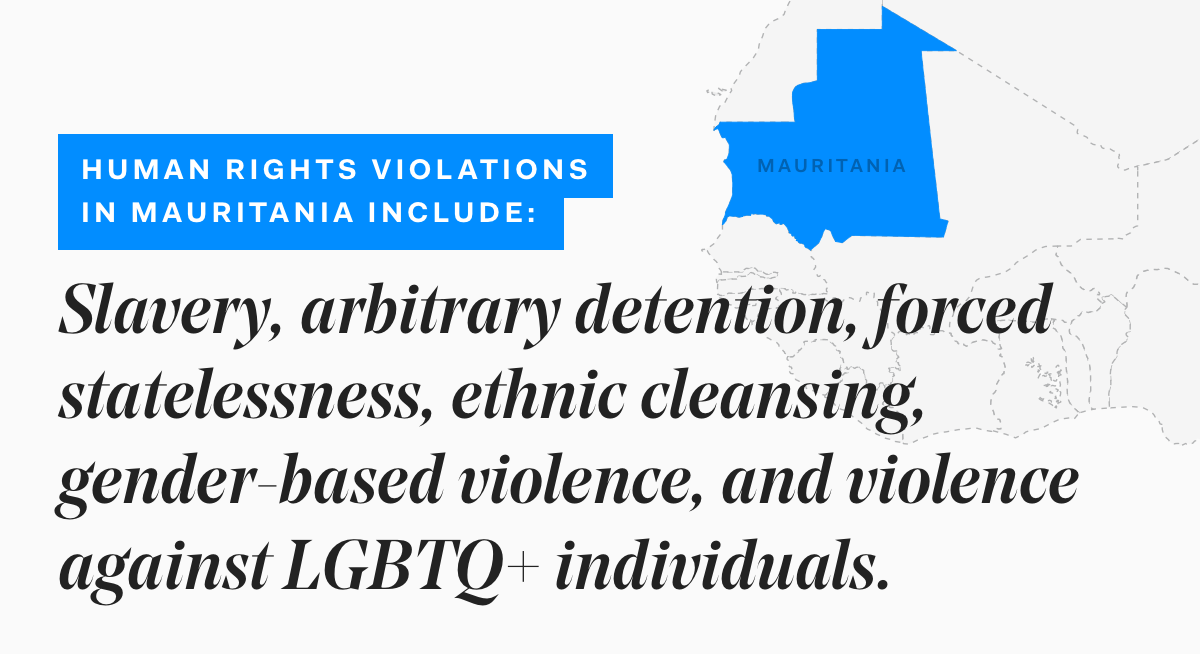Black Mauritanians living in the U.S. face horrifying violence, enslavement, and even death if they are deported and forced to return to Mauritania. Only urgent action from the Biden Administration and Congress can keep thousands of individuals and families safe. Black Mauritanians suffer widespread race- and ethnicity-based human rights abuses, state-sponsored violence, land grabbing, repression of free speech, forced statelessness, and slavery, making deporting Black people to Mauritania dangerous—and potentially deadly. Tragically, these conditions are largely the symptoms of a deeply-entrenched caste system that can best be described as an apartheid state.
Many Black Mauritanians were stripped of their citizenship due to their race and ethnicity and are now stateless, which restricts their ability to travel within Mauritania and also makes them perennially vulnerable to arrest. When deported to Mauritania, these indivdiuals are not welcomed as citizens but instead face state-sanctioned violence, the inability to work, and potentially slavery.
Black Mauritanians who are not stateless are still subject to arrest, detention, enslavement, the denial of rights, and numerous other abuses.
The Biden Administration and Congress have the ability to protect these individuals beginning with granting a designation of Temporary Protected Status (TPS) or Deferred Enforced Departure (DED), offering Black Mauritanians humanitarian parole, and providing them a pathway to permanent legal status through legislation. TPS, DED, and humanitarian parole represent critical administrative policy options that provide individuals who are already living in the United States the opportunity to remain in the country and work legally, free from the fear of being deported.

